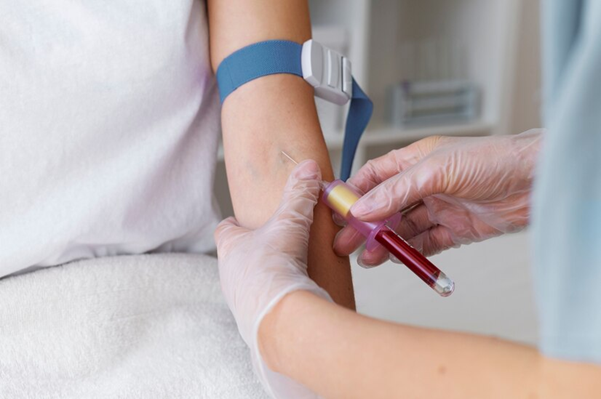Understanding STD Tests: What You Need to Know to Stay Safe
- Home

Sexually transmitted diseases (STDs) pose significant risks to public health, impacting individuals and communities alike. Therefore, understanding the STD test process is crucial. A simple STD test can identify infections that might otherwise go unnoticed. This helps in early treatment and prevents the spread to others.
Many myths and misconceptions surround STDs, hindering people from getting tested. Some believe that STDs only affect certain groups, but that’s not true. Anyone who is sexually active can be at risk. By shedding light on how to detect STDs, we can encourage safer practices and informed decisions.
This guide provides the necessary knowledge to navigate STD test processes safely and responsibly. We aim to clarify common myths, emphasize the importance of frequent testing, and discuss privacy measures. By doing so, we hope to foster a more open dialogue about sexual health.
Understanding STD tests is not just about knowing when to get tested. It’s also about understanding what each test involves and what kind of results to expect. For instance, some STD test results can be received the same day, while others, like how long do STI results take, may vary depending on the clinic and the type of test. This awareness can encourage a more proactive approach to health.
The Essential Guide to STD Testing
STD tests are vital for maintaining personal and public health. But, when should you consider getting tested? Regular testing is crucial, especially if you have multiple partners or suspect exposure to an infection. Knowing when and how often to check can make a big difference.
Types of STD tests include blood tests, urine samples, and swabs. For example, a syphilis blood test checks for this particular disease. The syphilis blood test cost varies, but many clinics offer affordable options.
Another important test is herpes, which can be detected through herpes testing blood tests. This process involves a simple STD blood work panel to look for symptoms. Understanding what’s involved helps ease anxiety and prepares you for the visit.
Test results guide your next steps. If positive, treatments or precautionary actions can be taken. To reduce fear and encourage people to get tested, it’s essential to discuss privacy and costs beforehand. Most clinics maintain confidentiality, which should relieve any concerns about privacy.
By understanding how to get herpes tested or other infections, you empower yourself to take control of your health. Not all STD test results happen the same day; knowing how long do STI results take can help set your expectations.
Challenging Myths and Enhancing Public Awareness
Many misconceptions deter people from seeking tests. Some believe that you only need an STD test if you show symptoms. However, many STDs might not show any signs.
We often hear myths like, “Only people with multiple partners need tests.” Anyone sexually active should get tested, and testing is important even if you’re in a monogamous relationship.
To debunk myths, we need real-world evidence. Many delay tests due to stigma, but getting tested is a responsible choice. Start open discussions to reduce fear and encourage a healthier view of testing.
Awareness is key. Educating people about regular testing and risks helps change attitudes. Everyone deserves to know how to safely navigate their health decisions. By demystifying the testing process, we make it accessible for everyone.
Whether it’s understanding a syphilis blood test cost or the steps to how to get herpes test, being informed aids in eliminating the bias and driving positive change.
Empowering Individuals with Resources and Recommendations
Locating reliable clinics for STD tests is essential. Clinics in India offer confidential testing, making the process straightforward.
Here are steps to prepare before a test: – Bring identification: It helps speed up registration. – Know what you’re being tested for: Specific tests require specific preparations. – Fast if necessary: Some blood tests require fasting.
Discussing your STD test results with partners might feel uncomfortable, but it’s important for mutual safety. Here’s how: 1. Be honest and direct. 2. Share the facts you’ve learned, explaining the situation clearly. 3. Encourage joint testing to ensure both understand their health status.
This knowledge equips you to take action, ensuring health and safety in your relationships.
Remember, a well-informed choice today sets the path for healthier communities. Knowing where and how to get tested, the cost of tests, and being able to discuss results confidently can make all the difference.
At Askam Healthcare and Scientific, we provide comprehensive STD testing, including herpes testing and STD blood work panels, to ensure both personal and community well-being. Take charge of your health—get informed, stay healthy, and schedule your test today!
